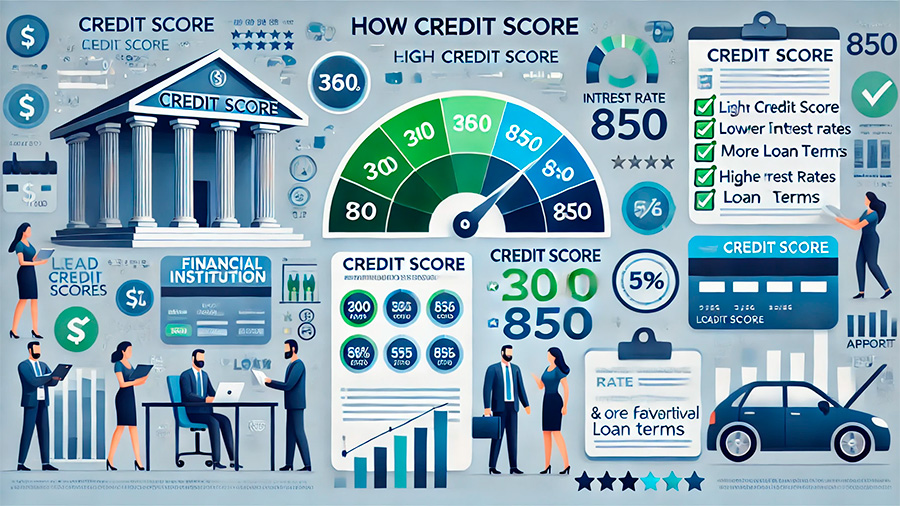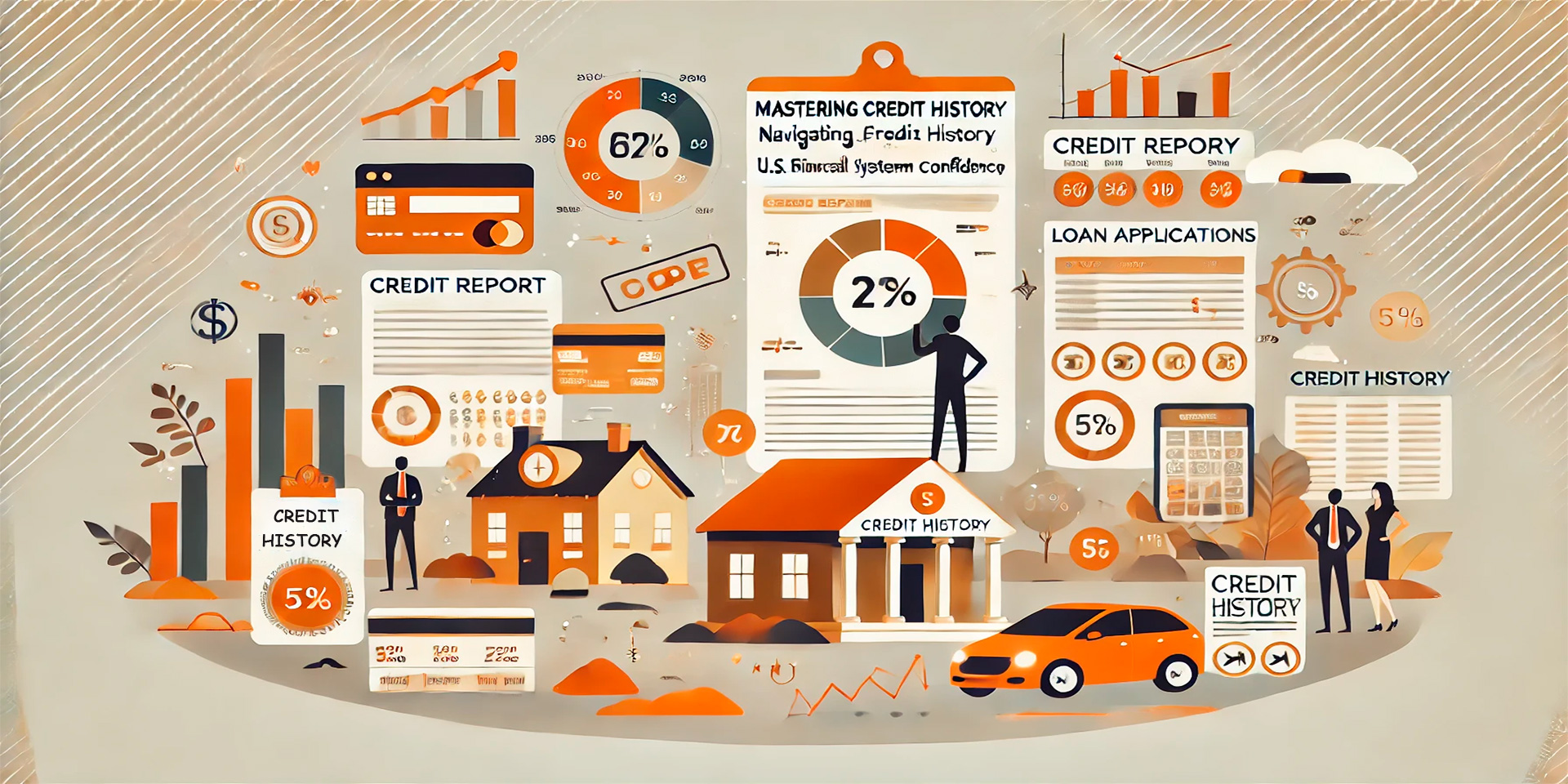In America, your credit history serves as a crucial indicator of your financial responsibility and trustworthiness. It’s more than just a record of your past borrowing and repayment activities; it’s a gateway to securing better loan opportunities. Lenders rely heavily on your credit history to assess the risk involved in lending you money. A strong credit history can significantly enhance your ability to access loans with favorable terms, such as lower interest rates, higher credit limits, and more flexible repayment options. This makes your credit history an essential asset in managing your financial life effectively.
A robust credit history reflects your ability to manage debt responsibly, signaling to lenders that you are a reliable borrower. It also opens doors to financial opportunities that might otherwise be out of reach, allowing you to secure loans that can help you achieve important life goals, whether it’s buying a home, pursuing higher education, or starting a business. Building and maintaining a solid credit history requires a deep understanding of the factors that influence it, as well as a commitment to responsible financial practices.
Understanding the Components of Credit History
Your credit history is a comprehensive record of your financial behavior over time. It includes details about the types of credit accounts you have, your payment patterns, the total amount of debt you carry, and any incidents of late payments, defaults, or bankruptcies. This information is collected by credit bureaus, which then compile it into a credit report. Lenders review this report to evaluate your creditworthiness, making it a critical factor in their decision-making process.
Credit history is tracked by the three major credit bureaus in the U.S.: Equifax, Experian, and TransUnion. These agencies gather data from a variety of sources, including banks, credit card companies, and other financial institutions, to create a detailed picture of your financial habits. The information in your credit report is used to calculate your credit score, a numerical representation of your creditworthiness that plays a significant role in determining the loan terms you’ll be offered.
The key components of your credit history include your payment history, the amounts you owe, the length of your credit history, the types of credit you use, and any recent credit inquiries. Each of these factors contributes to your overall credit score, which lenders use to assess the risk of lending to you. A positive credit history reflects consistent, on-time payments, responsible use of credit, and a balanced approach to managing different types of debt. Conversely, a negative credit history can limit your borrowing options and lead to less favorable loan terms.

The Role of Credit Scores in Loan Terms
Your credit score, which is derived from your credit history, is a crucial determinant of the loan terms you’re offered. This three-digit number, typically ranging from 300 to 850, serves as a shorthand for lenders to gauge your creditworthiness. A high credit score indicates that you are a low-risk borrower, which can lead to more favorable loan terms, such as lower interest rates and higher loan amounts. On the other hand, a lower credit score suggests a higher risk, often resulting in higher interest rates and more restrictive loan conditions.
Lenders use your credit score to decide not only whether to approve your loan application but also what interest rate to charge you. For example, if you’re applying for a mortgage and have a high credit score, you’re likely to qualify for a lower interest rate, which can save you a substantial amount of money over the life of the loan. In contrast, a lower credit score might result in a higher interest rate, increasing your monthly payments and the overall cost of borrowing.
The impact of your credit score extends beyond just the cost of borrowing. It also affects your ability to qualify for certain types of loans. Many lenders have minimum credit score requirements, and if your score falls below this threshold, you may find it difficult to secure a loan. A strong credit score not only enhances your chances of loan approval but also gives you access to a wider range of financial products and better loan terms, allowing you to achieve your financial goals more effectively.
Building and Maintaining a Strong Credit History
Building a strong credit history is a gradual process that requires consistent, responsible financial behavior. It begins with establishing a credit record, which can be done by opening a credit card or taking out a small loan. Once you have credit accounts, it’s crucial to manage them wisely to build a positive credit history over time.
Paying your bills on time is perhaps the most important factor in building a strong credit history. Timely payments demonstrate your reliability as a borrower and have a significant positive impact on your credit score. It’s also important to keep your credit card balances low relative to your credit limits, as high credit utilization can signal financial stress and lower your credit score. Ideally, you should aim to use less than 30% of your available credit to maintain a healthy credit score.
Another aspect of building a strong credit history is the length of your credit accounts. The longer you’ve had credit accounts open, the more positively it reflects on your credit history, as it shows you have experience managing credit over time. It’s also beneficial to have a mix of different types of credit, such as credit cards, installment loans, and a mortgage, as this diversity demonstrates your ability to handle various forms of debt.
Monitoring your credit report regularly is also essential to maintaining a strong credit history. By reviewing your credit report, you can ensure that all the information is accurate and up-to-date. This also gives you the opportunity to catch any errors or signs of fraudulent activity early, which can be crucial in preventing damage to your credit history.
Rebuilding Damaged Credit
If your credit history has been damaged by past financial mistakes, such as missed payments or high levels of debt, it’s important to take steps to rebuild it. The first step in this process is to assess your current financial situation and identify the areas that need improvement. Reviewing your credit report can help you understand where your credit issues lie and what actions you need to take to address them.
Rebuilding your credit requires time and patience, but it’s achievable with a consistent effort. Start by focusing on paying down any outstanding debts, particularly those that have gone into collections. Paying off these debts can gradually improve your credit score. It’s also important to establish a positive payment history moving forward by ensuring that all your bills are paid on time.
In addition to paying down existing debt, consider using credit responsibly to build a positive credit history. This might involve taking out a secured credit card or a small loan and making regular, on-time payments. Over time, these actions will help you rebuild your credit and improve your score, opening the door to better loan opportunities and more favorable financial terms.
Conclusion
Your credit history is a vital component of your financial profile and plays a key role in determining your access to loan opportunities in America. A strong credit history not only makes it easier to secure loans but also ensures that you receive the best possible terms, saving you money and providing greater financial flexibility. By understanding the factors that influence your credit history and taking proactive steps to build and maintain it, you can enhance your financial future and unlock better loan opportunities. Whether you’re planning to buy a home, finance an education, or start a business, a solid credit history is your ticket to achieving your financial goals and enjoying long-term financial success.



